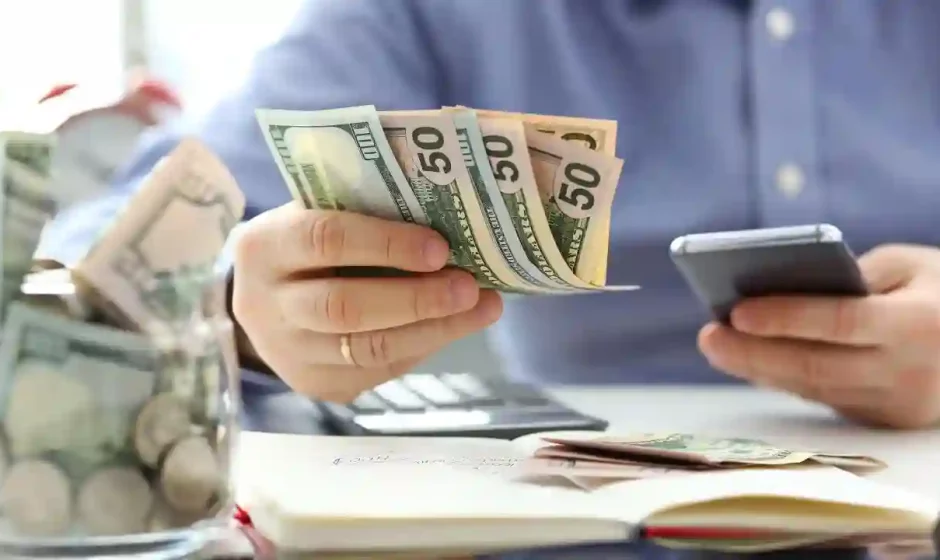Typically, lenders want to see that a borrower has a regular income to help ensure that they’ll be able to repay a loan. This doesn’t necessarily have to be from a paycheck — it can also be unemployment benefits or other forms of income.
This can make it difficult for unemployed borrowers to qualify for personal loans, or even get approved under favourable terms.
What is an Unemployed Loan?
When you’re unemployed, it can be difficult to find a loan. Most lenders require a borrower to have a steady income before they will approve a personal loan. There are exceptions though. Some loans don’t require a borrower to have a job, such as unsecured credit cards, student loans and mortgages.
Lenders may still require proof of income for some types of loans, however. If you’re considering applying for a personal loan while unemployed, it’s important to understand the risks and benefits. Select spoke to financial wellness educator Danetha Doe for some tips on how to navigate this process.
Doe explains that personal loans are typically sanctioned against a collateral or security that the borrower pledges to the lender. The value of the pledged asset determines the amount of the loan. If you’re unable to pay back the loan, the lender can repossess the collateral.
Some personal loans offer a special feature called unemployment protection. This is an insurance policy that can make payments on your loan if you lose your job involuntarily due to circumstances such as a layoff, strike or unionized labor dispute. You can usually purchase unemployment protection as an add-on to your loan or include it as a part of your original loan application. It’s important to note that a lender can only add unemployment protection to your loan with your consent, and it’s not required by law.
What are the Benefits of an Unemployed Loan?
If you’re a borrower facing the loss of your income during unemployment, there are options for financial assistance. Many lenders, credit card issuers, utility providers, and landlords are offering some form of support to those impacted by the coronavirus pandemic. Many of these services can help you pause or modify your payment obligations and fees while you look for work, as well as extend the terms of your repayment plans or interest rates to make things more manageable.
A personal loan can be an option to consider, but it’s important to understand the pros and cons of such loans before applying. In general, lenders are concerned that borrowers will not be able to repay their debts if they lose their job, so they’re more likely to approve an application from someone with a stable source of income (like a steady paycheck).
Some lenders may require supplementary income verification in order to qualify for a personal loan for the unemployed. This can include retirement funds, rental property proceeds, Social Security benefits, child support or alimony payments, and other forms of income. Upgrade, for instance, offers some of the largest loan amounts, lowest APRs and longest repayment periods among lenders that accept supplemental income verification from borrowers. You can also improve your approval chances by applying jointly with a friend or family member.
How to Apply for an Unemployed Loan
Lenders typically want to see a borrower has a steady source of income before they approve a loan application. This is because lenders are trying to determine how likely a borrower is to repay their debt on time. It’s possible to get a 무직자대출 when unemployed, but the process can be more difficult and you’ll likely need to provide alternative proof of income such as a rental property or savings.
It’s also important for borrowers to understand that they are taking on new credit while unemployed. This means that if they are unable to make their loan payments, their credit score will take a hit. Additionally, if they default on their loan, they could face additional fees and even a lien on their property.
One way that a borrower can avoid this is by purchasing unemployment protection with their loan. This insurance is designed to make loan payments if the borrower loses their job due to involuntary reasons, such as layoffs or a strike. However, borrowers should be aware that this is an optional extra and they shouldn’t be pressured into it by their lender.
Additionally, if a borrower can’t afford their loan payment, they should talk to their lender about a forbearance or hardship program. This is a temporary change to the terms of the loan that can help borrowers get back on track.
Unemployed Loan Interest Rates
While it’s possible to get a personal loan while unemployed, it’s important that you weigh your options carefully. Personal loans often carry interest rates that can be high, and failure to make payments on time can hurt your credit. Moreover, borrowers who take out personal loans while unemployed may be more likely to face additional fees such as late charges or collection actions.
It’s also worth mentioning that while some lenders don’t conduct hard credit checks or have debt-to-income requirements, others will. To improve your approval chances, it’s important to shop around and compare multiple lenders. Additionally, if you’re able to provide supplementary income such as rental income, Social Security benefits or alimony, you can improve your chances of getting approved for an unemployment emergency 대출납입계산기.
Another option is to apply with a lender that offers unemployment protection, or involuntary unemployment insurance. This coverage is usually offered as an optional add-on when you first receive a loan, and it’s designed to cover your payments in the event of an unexpected job loss. However, it’s important to note that this type of coverage isn’t available from every lender, and that it’s typically an expensive add-on.



